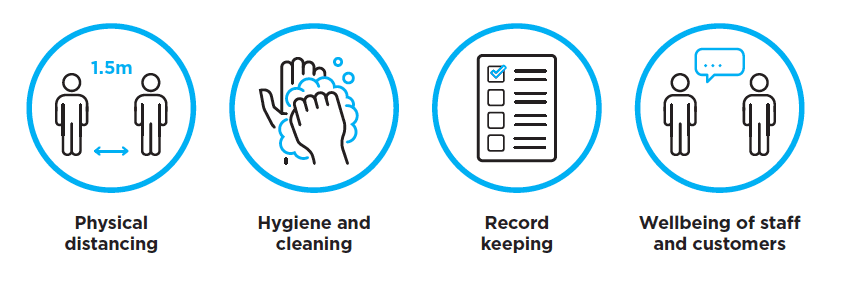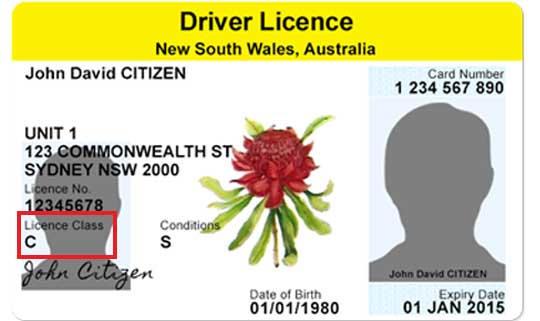Separation with your partner is certainly one of the most difficult times of your life. After separation, disagreements over parenting or/and financial matters is most common, especially because there are a lot of emotions involved. These disagreements can cause a great deal of conflict which is unhealthy for you and for the children.
It is easier said than done, to have your emotions aside while making decisions with regards to finances or parenting, after separation. However, there are avenues and courses available for people who have separated and are struggling to co-parent while living apart i.e. Parenting After Separation Program or Keeping Kinds in Mind, separated parents who are unable to deal with their emotions i.e. Circle of Anger or Managing Anger or even follow through the Orders made by the Court or agreed between your partner and yourself i.e. Parenting Order Program.
These courses assist you in developing a child-focussed approach, which is all you need on your coparenting journey, as you learn to parent together while living apart. Apart from that, these courses help you recognise and minimise conflicts while making decisions. You might neglect to notice, but children are also greatly affected/impacted. Groups are also run for children to help them deal with feelings and experiences associated with their parent’s separation i.e. Our Kids.
Also, there are courses and coaching available for parents are who are unprepared for facing the challenges of the legal process, particularly preparation for Court, or to have the best chance of coming to suitable agreements in Mediation i.e. Court and Mediation Readiness for Separating Parents. Prior preparation is essential but most of the times, emotions such as stress, anger, fears, ego and insecurity can get in the way, while making important decisions.
A few of the organisations that provide courses after separation are Relationships Australia (1300 364 277), Anglicare (02 9895 8144), Uniting Counselling & Mediation (02 8830 0700), and Catholic Care (13 18 19).
If you are struggling after separation and require any legal assistance, please feel free to contact us on 02 8917 8700, we can assist in directing you to the most appropriate course suitable for you and also assist in resolving the matter amicably and expeditiously.
If you are currently considering adopting a child, you may realise the court system in NSW can be quite complicated and confusing. It may also be difficult to figure out where to start looking, where the best source of information is and how adopting a child can change your current family dynamic.
In NSW, you can adopt whether you are a single person or a couple (whether married or in a de facto relationship). You must also be:
- A resident or domiciled in NSW,
- Of good repute and fit and proper to fulfil the responsibilities of parenting,
- Over 21 years of age, and
- At least 18 years older than the child to be adopted.
Amongst the above requirements, the Adoption Act 2000 also sets out some other general principles:
- the best interests of the child, both in childhood and later life must be the main consideration
- adoption is a service for the child rather than the right of an adult hoping to adopt them
- the child or young person is to be assisted to know and have access to their birth family and culture
- the child’s given name or names, identity, language and cultural and religious ties should, when possible, be identified and preserved
- openness is to be encouraged in adoption including the applicants’ attitudes towards birth family members and contact
- the making of an adoption order must be clearly preferable to any other action that can be taken by law.
There are also various types of adoption. The Department of Communities & Justice sets out the differences in varying kinds of adoptions (https://www.facs.nsw.gov.au/families/adoption/adopting-a-child). Generally, the two most common types of adoption are: -
- Adopting a child within the family
Adopting within the family is also known as ‘intrafamily adoption’. This can be by a stepparent or a relative such as by a grandparent, son, daughter, grandchild, brother, sister, uncle, or aunt of the child.
- Adopting a child from overseas
Adopting a child from overseas is also known as ‘intercountry adoption’. All intercountry adoptions are governed by the Hague Convention on the Protection of Children and Cooperation which places obligations on both the child’s birth and receiving country. It is also important to be aware that whilst the Australian government actively works to negotiate with other countries relating to the adoption of children, there are only a limited number of participating countries, and many restrictions can apply. Intercountry adoption can also be very expensive when considering airline travel, overseas accommodation and costs in preparing the documentation (e.g. translation, legal and notary fees).
Nevertheless, adopting a child can be a very rewarding process for families. If you have any questions or queries, please do not hesitate to contact Freedman & Gopalan Solicitors on 02 8917 8700, and we’ll be happy to guide you through the adoption process.
This week, students studying law at Monash University in Melbourne have protested against the exam conditions imposed upon them during COVID-19. Over 980 'disappointed' students have signed a survey registering their distress and frustration with the new exam protocols. On 10 June 2020, students were told that they would need to ensure they had multiple devices which can sustain three hours of a video call, so that exam invigilators can monitor them while taking the exams at home.
Their frustration reflects the concerns of many tertiary students around the country seeking to adapt to online learning during the coronavirus pandemic. The online exam-taking software ProctorU has come under fire due to concerns about privacy and data protection. ProctorU is a software which monitors students taking exams at home via webcam and allows students to hand over control of the computer to 'proctors' located elsewhere. Generally the student is required to present their ID card on camera, and the software uses its own facial recognition software to confirm the student’s identity. The student is then asked to take a 360 degree view of the bedroom so the proctors can identify anything suspicious. During the exam, the webcam technology tracks eye movement, noise and keystrokes to ensure the student isn't looking at notes hidden elsewhere in the room. By granting the proctor control of the computer, the software is able to disable some computer functions such as copy and paste, and can turn off any applications running in the background.
The concerns of the students at Monash are that these systems benefit students who can afford the latest technology and who live in residences with reliable wifi and other technological support. The university has not provided economic support to enable surveillance technology within homes, nor allowed for the possibility that internet connections may fail. Students are also concerned that the offshore invigilators or 'proctors' are given access to any personal information or data on students' computers. While ProctorU states that its proctors will not use any more information that necessary, the ProctorU privacy policy acknowledges it may sell or transfer information collected from students in the event of a “bankruptcy, merger, acquisition, reorganization, or sale of assets.” That information includes students’ name, email address, educational institution, phone number, country of residence, IP address, internet service provider, browser extensions and video and audio recordings of the examination.
One thing that we can be sure of is that these are unprecedented times, and it is important that universities acknowledge the varying circumstances of their students. Educational integrity, as well as equal opportunity examinations and protection of student privacy, are all to be strived for.
Whether the relationship/ marriage has broken down, or you are still in the process of considering ending the relationship/ marriage, here are some practical considerations before walking out: -
- Take immediate steps to secure your data
Many couples share passwords and logins to bank accounts and other personal information during the relationship in order to more easily manage the family’s affairs. To ensure your interests are protected, ensure that all your personal accounts and passwords are changed. It may also be worthwhile to establish a new email account, particularly if you intend to retain a lawyer to assist you for your property settlement and parenting affairs subsequent to separating. Kindly start saving all important text messages, emails and photographs. It is imperative that you start recording and taking photographs of events, especially if you have been injured in any manner during a domestic violence incident.
- Ensure you have access to some funds
This may vary depending on your individual circumstances, but it highly recommendable that you have a secure sum of money (whether it be funds from your own or joint sources) which can be used for expenses such as obtaining initial legal advice. You may also need to consider monies in relation to setting up new accommodation if you intend on moving out of the premises. This would include a bond, a few months’ worth of rent, utility costs and an amount saved for food and other necessities.
- Secure your children’s passports, birth certificates and other important documentation
This is particularly important if your former partner has connections overseas, and there is a chance that the children may be taken overseas without your knowledge. Whilst a Recovery Order may be obtainable in these circumstances, prevention is always key and will give you a peace of mind. You may also want to consider placing your child on the Airport Watchlist if your intention is to commence legal proceedings soon thereafter. We would strongly recommend that you keep the original birth certificate, passport and other important documentation at a safe place that is only accessible to you and your close contacts.
- Secure your own documents.
It is paramount that you collate and secure your important documentation. This may include bank statements, tax documents, any registration documents and superannuation documents. You may also need to review your Will and Power of Attorney, and we would highly recommend you obtain legal advice if this is necessary.
- Inform relevant people of your separation
For your safety, particularly in domestic violence situations, it is essential to notify you close family or friends that you intend on leaving your partner.
You may also consider notifying your child’s school/ childcare to ensure there are immediate steps taken to ensure there is a joint authority of both parents to remove the child from the premises.
If you have joint bank accounts with your ex-partner, it may also be worthwhile to notify the banks of your intention to separate. This is particularly important to ensure the banks do not act on your ex-partner’s instructions without your consent.
- Consider the impacts this will have on your Will.
If there are considerable assets that you are worried about, kindly ensure that your Will is updated, or you proceed to prepare your Will, in order to ensure that your assets are only distributed amongst your children and does not go to your partner in the event that something happens to you between now and formal separation or property takes place
If you are intending to walk out on your partner, we would highly recommend that you obtain independent legal advice. Our team at Freedman & Gopalan Solicitors is here to assist and guide you through these tough times. Please do not hesitate to contact us on 02 8917 8700 to speak with our lawyers, or feel free to leave an enquiry via email, and we will be in touch as soon as possible.
Now that Australia is opening up again and people are heading back to work, it is important that we all go back to the office, and any place of work, in a safe and responsible manner. Freedman & Gopalan Solicitors has registered our COVID Safety Plan and been certified as a COVID Safe Business.
COVID-19 Safety Plans help to protect staff, customers and visitors as NSW gets back to business. Some businesses will need to complete a COVID-19 Safety Plan under the public health orders, but you can also voluntarily complete one.
As a business owner or employer, what should I be doing?
To become a COVID Safe business, go to the NSW Government Guide on COVID Safe Businesses. Here, you will be guided through making a COVID-19 Safety Plan, depending on what environment your business operates in. Options include agriculture, libraries, restaurants and cafes, sports and recreation facilities, and office environments.
In an office environment, it is important to follow the guidelines in the following areas:
- Staff and visitor wellbeing. No one should be attending work if they are unwell, and this should be communicated clearly to everyone who will be coming into the office
- Physical distancing. Only one person can safety occupy a 4 metre squared space. Thus, it is important to use flexible working arrangements where possible, use telephone or video platforms for essential meetings, and ensure people maintain 1.5 metre physical distancing at all times.
- Hygiene and cleaning. Surfaces should be regularly disinfected and hand sanitiser should be available at multiple locations throughout the workplace
- Record keeping. The business must keep a record of name and contact details of all staff, volunteers, visitors and contractors attending the office, for the purposes of tracing COVID-19 infections. These records must be kept for at least 28 days and stored confidentially and securely.
These are the guidelines that Freedman & Gopalan Solicitors will be following as we start going back to the office. The guidelines in your workplace may be different, and so it is important that you complete a COVID-19 Safety Plan and make it available for all your staff.
As an employee, how can I ensure that it is safe for me to return to work?
If you are unsure whether your employer has completed a COVID Safety Plan, speak with them about it. It may be that a Plan has been put in place, but just not made publicly available. If your employer has a informal plan on how to keep employees safe, encourage them to go to this website: https://www.nsw.gov.au/covid-19/covid-safe-businesses, and register as a COVID Safe Business. It only takes a few minutes, and can help protect our community from the spread of COVID, as well as providing peace of mind to employees and visitors.
Part of being a COVID Safe Business is ongoing consultation with staff, visitors and clients, as well as feedback on how we are going. If you have any questions or would like to provide us with feedback, please contact us via 02 8917 8700 or send us an email on reception@freedmangopalan.com.au.
High-conflict situations post-separation can lead to the child preferring to spend time only with one parent, or even outright refusing to spend time with or contact the other parent. If this is the result of one parent deliberating alienating the child from the other parent, it is called parental alienation. If this occurs naturally, without manipulation by any parent, it will not be parental alienation.
Parental alienation is the specific process by which a child becomes estranged from one parent as a result of the psychological manipulation of the other parent. It can be a grave concern for some parents who are parenting after separation, and this manipulation can result in a fracture between the parent-child relationship that needs to be addressed immediately.
Examples of parental alienation include:
- Making the child unavailable for the other parent's visits, or visits from grandparents and other family members connected with that parent,
- Deliberately speaking ill of the other parent,
- Sharing unnecessary details of the separation/divorce, or suggesting to the child without justification that the other parent is abusive,
- Rejected the other parent's gifts and presents,
- Making important decisions about the child without consulting the other parent, and
- Infringing on the other parent's time with the child.
Parental alienation is both a legal issue and one which needs to be addressed with family therapists and psychologists with experience in these situations. Agreeing the terms of how parenting after separation will operate, with binding Consent Orders, and discussing these issues with your ex-partner is important in terms of not letting the situation go this far.
If you are parenting after separation and feel that the other parent is undertaking emotionally manipulative tactics to influence your child, please contact our offices, and we will assist you in understanding these personality traits and provide you with assistance and support, as well as in depth practical legal advice.
There are many reasons why a parent after separation may wish to relocate, or move cities, with their child, including financial stress, employment opportunities and the need to be close to family support. However, relocation is a difficult issue when parenting after separation, as both the child's best interests and the interests of the ex-partner come into play.
Parents may be able to reach an consensual agreement that one parent will relocate with the child while the other parent takes care of the child for longer periods of time in the school holidays and throughout the year. Alternately, both parents may relocate, but continue to be separated. If such an agreement is reached, it is highly advisable that the parties file Consent Orders in court, that outline the terms of the agreement reached.
If there is no agreement, the Court's permission will need to be sought. The Court is generally reluctant to give permission for relocation, given the non-relocating parent will lose significant time with the child. However, if the Court finds adequate reasons for believe the child's best interests are in relocation, then the Court may make the Orders, with arrangements for the other parent to spend set time with the child. The relocating parent has the burden of demonstrating the child's best interests are with relocation, as this is the paramount consideration in the eyes of the Court.
When considering making Orders, the Court will also consider:
- The child's interest in having a meaningful relationship with both parents,
- Protecting the child from physiological or psychological harm, or being exposed to abuse, neglect and/or family violence,
- The views of the child,
- The child's relationship with each parent, and other family members such as grandparents, aunt, uncles and cousins,
- Maturity, sex, lifestyle and background of the parents and child
- Any other relevant factors
If you would like assisting in relation to you or your ex-partner seeking to relocate with your child or children, please do not hesitate to contact Freedman & Gopalan Solicitors to discuss your options.
As a driver within NSW, it is vital that you are aware of your rights and obligations.
Where a driver does not comply with the roadside rules, they may be subject to the Demerit Points Scheme.
What is the Demerit Points Scheme?
This scheme is a national program that allocates penalty points for driving offences. Along with financial penalties, demerit points provide a strong incentive to drive within the law.
How demerit points work?
The demerit point scheme is administered by NSW Roads and Maritime Services. It allocates penalties, which are known as demerit points, for certain driving offences. If you accumulate a specified number of demerit points within a three year period, your licence will be suspended.
How many demerit points are you entitled to?
The amount of demerit points you have depends on the licence you hold.
a. Normal unrestricted drivers licence
Generally, unrestricted licence holders have a demerit point limit of 13 points within a three year period.
You are eligible to hold an unrestricted licence once you complete the following 6 steps over the course of 4 years: -
- You must pass the Driver Knowledge Test to get your learner licence (L’s);
-
(a) If you are under 25, you must complete 120 hours of supervised driving practice and hold drivers licence for 10 months
(b) If you are over 25, you can proceed to step 3. - You must attempt the Hazard Perception Test (HPT). This is a computer-based touch screen test that measures your ability to recognise potentially dangerous situations on the road and respond appropriately
(a) If you are under 25, you need to hold your learner licence for at least 12 months and complete 120 hours of supervised driving practice, including 20 hours at night, before moving to step 4.
(b) If you are over 25, you can go straight to step 4 after you pass the HPT - You must then book and pass the driving test to get your provisional P1 (red) licence). You will need to hold your P1 licence for at least 12 months before you can progress to step 5.
- You are then eligible to apply to a provisional P2 (green) licence. You need to hold your P2 licence for at least 24 months before you can progress to step 6.
- Once the above steps are completed, you are then eligible to progress to a full unrestricted licence.
- Note: P2 drivers who receive a suspension for unsafe driving behaviour must stay on their P2 licence for an extra 6 months for every suspension they receive.
b. Professional Drivers
Professional drivers licence holders have a demerit point limit of 14 points within a three year period.
You are eligible for a professional drivers licence if you hold an unrestricted license and you are a:
- Motor vehicle driver who transports goods either inter and/or intra state, or
- Bus, taxi or hire car driver who holds an authority issued under the Passenger Transport Act 1990.
The following conditions apply: -
- You must earn an income for the driving work and drive more than 20 hours per week. Volunteer drivers do not qualify.
- You must have been a professional driver on the date of your last demerit point offence and on the date the notice of suspension was given.
You do not qualify as a professional driver if: -
- Driving a motor vehicle is incidental to your primary work such as a tradesperson, salesperson, tow truck operator etc
- Your primary work is driving an implement (bulldozer, road roller etc)
- You have not held a licence for more than 6 months because it expired or was disqualified
- Your primary work is personally driving a motor vehicle but the driving is not for the purpose of transporting goods
- Your primary work is personally driving a motor vehicle to transport people but the driving is not for the purpose of transport
- Your driving is only to transport yourself to a place of work or education
With COVID-19 related restrictions and lockdown impositions, many of us have been working from home. How has this affected your work? Have you been able to be completely productive? With this huge change that has been imposed on society, people are finding it difficult to in fact work from home. Being constantly motivated, adhering to deadlines, meeting targets without access to the right facilities are all imposing additional hurdles on every employee.
We would like to share some tips to assist you to ensure that you get through a day of productive work: -
1. Have defined hours.
By committing solely towards those demarcated hours to do nothing else but work definitely helps. Set aside all other distractions that can come with working from home, and do not try to juggle work and home duties during that time.
2. Have regular team meetings or meetings with your boss or colleagues.
This is so that there is a mode of communication, constant flow of ideas and expectations are set so that each one will be responsible for the tasks allocated to them, and there is no overflow of confusion of task allocation.
3. Have a to do list or have other reliable applications such as Google Sheets or Microsoft Teams.
Relying on applications definitely enables you to ensure that you do not miss out on your to do tasks, apart from having a sense of achievement once the same has completed.
4. Structure your day like how you would in the office.
When working from home, remember that you are your own personal manager. Use other tools and follow schedules just like you would otherwise do in the office.
5. Choose a dedicated work area.
It will certainly assist if you dedicate a specific room or surface in your home to work on a daily basis, and you could call this consistently ‘your workspace’. It certainly helps you to get into the right frame of mind.
6. Commit yourself to doing more.
It would help if you slightly overcommit yourself on what you will deliver each day. This forces you to in fact attain a goal that you will force to deliver to yourself as it would force to keep you honest even if there are other temptations that come along during the day like Netflix or Prime.
7. Use technology to stay connected.
Rely upon instant messaging or video conferencing tools in order to make sure that you remain in touch with your co-workers, colleagues or clients, and it helps make remote meeting more productive.
8. Take clear breaks.
It is easy to get distracted while you are at home, and accordingly, make sure that you stick to your work hours and scheduled and the plan for the day and that you force yourself to take breaks only when scheduled.










